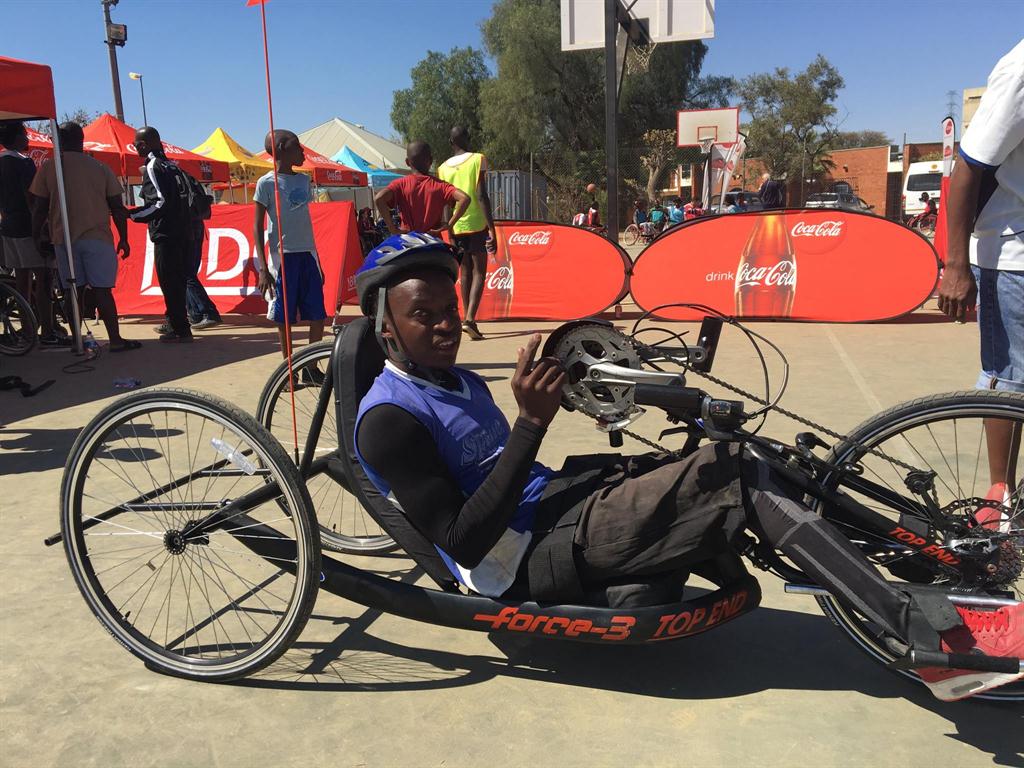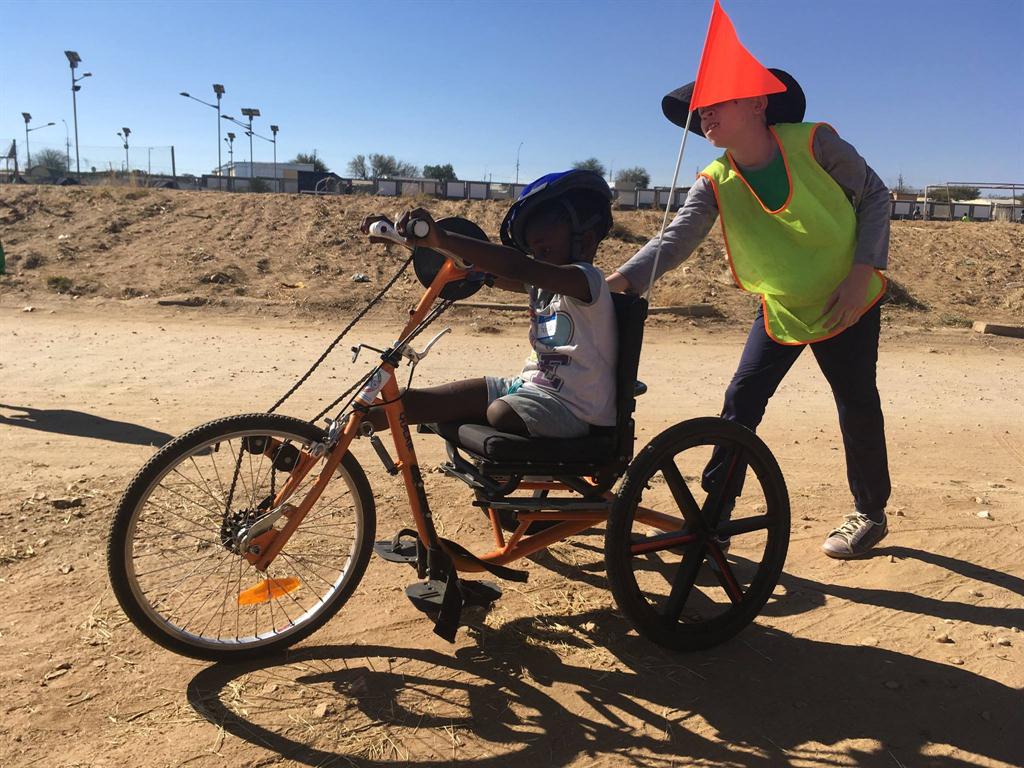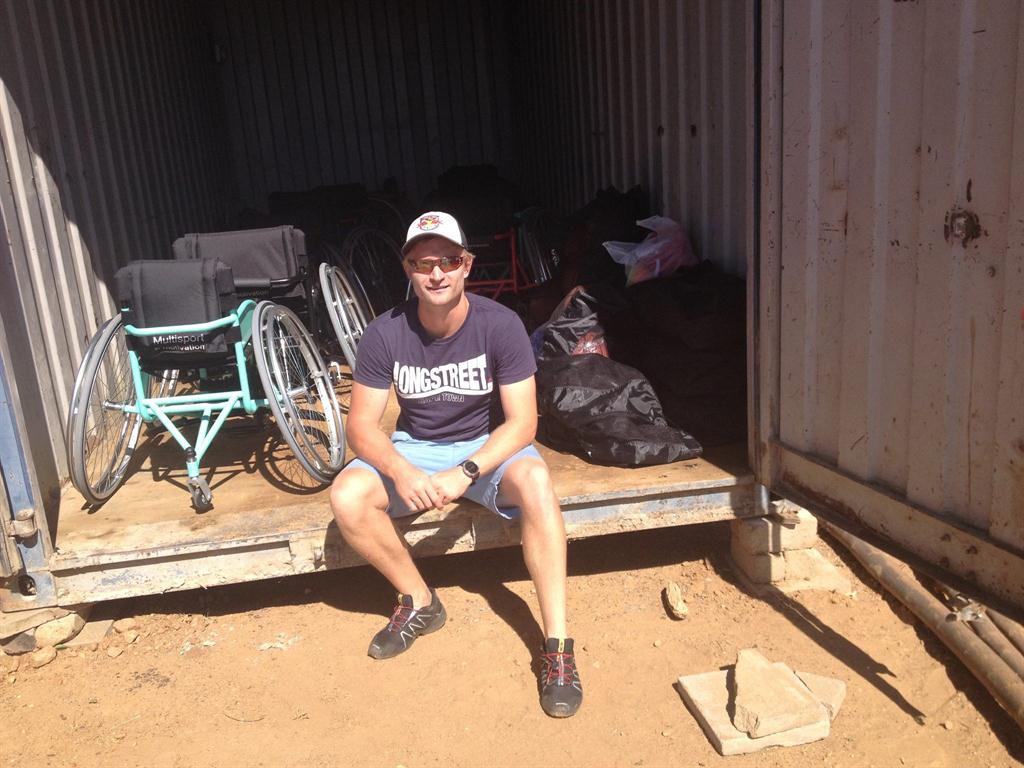Changing lives through wheelchair basketball
Wheelchair basketball is finding new ground under the tutelage of Bjorn Magg.
Local biokineticist Bjorn Magg is helping disabled men and women to find purpose through wheelchair basketball.
Disabilities are still wrongly perceived by some as a limitation. Often, people with disabilities have to rely not just on others, but on certain equipment such as crutches and wheelchairs to go about their daily activities. But many of them do not see themselves as 'victims', confined to their equipment.
They are continuously pushing against the odds in many areas, including sports.
It is heart-warming to watch people with disabilities playing basketball. This is what is happening in Namibia, particularly in Windhoek, Oshana and Ohangwena where wheelchair basketball clubs have been established.
The Wheel-Ability Sports Club in the capital started off as a social club, but has grown after receiving 14 sports chairs and four racing chairs, says Magg, who is coaching players to reach their full potential.
Magg is a born and bred Namibian who attended school at Delta Secondary School, studied biokinetics in Pretoria and now runs his own practice.
He says he enjoys playing squash and taking part in water sports when he is not coaching the wheelchair basketball team.
His interest in wheelchair basketball began in his final year of studies when he worked with a biokineticist, who was training a wheelchair basketball player.
“It was very inspirational for me to see this paraplegic individual train so hard. Ever since then I wanted to get involved in the sport in one way or another.
'When I finally got back from my studies, I looked for a team to get involved with. I got in contact with a team called Wheel-Ability Sports Club, and after our first get-together I was basically pronounced manager of the team. Time flies, as this is five years ago already.
“Currently, we have 16 active members at our club, of whom two are females. We do have more members on the books but they unfortunately aren't all that active.”
Magg says on international level only disabled athletes are allowed to compete in the sport but at club level able-bodied athletes are allowed to make up the numbers.
There is a classification system in wheelchair basketball allowing players to compete with different levels of disability. “Each player gets classified, staring at 1.0 going all the way up to 4.5: the higher the degree of disability, the lower the classification,” Magg explains.
Much like other sport codes in the country, the club does not receive regular funding from corporates. “We just make do with what we have. If there is some sort of need, we do fundraisers and approach companies for assistance. The main support we get is from the MVA Fund and Red Bull Namibia,' he says.
He hopes that more people will join the club.
“My personal vision is for the club to progressively and constantly improve. We have already extended our offers from just wheelchair basketball to also wheelchair racing and adaptive cycling. These two additional sports are mainly organised by one of our players who also is the team captain, Roodly Gowaseb.'
The coach says transport is always a big issue for players. “It would be great if the government would finally be able to improve our public transport, especially with attention to people with disabilities.
“We do have multipart wheelchairs, however if we want to get more competitive we would need to get customised basketball chairs for our players.
“This however is a very costly project, as each chair would roughly cost N$35 000. We always appreciate it if the public supports us when we have fundraisers for specific projects like going to tournaments. Currently we are in need of new tubes and tyres for our wheels.”
Magg believes that sport is important for everyone, disabled or not.
“It's a powerful tool to promote health, confidence, teamwork and positive interaction. Hence I strongly advise the parents of any child with a lower-body disability to come to one of our practices and at least try it out once.”
Those interested in enrolling for wheelchair basketball, adaptive cycling or wheelchair racing can contact Magg on Facebook: Wheel-Ability Sports Club, on 061 241785 or e-mail him at [email protected]
Practice is on Sundays at 15:00 at the Katutura Youth Centre.
LIMBA MUPETAMI
Disabilities are still wrongly perceived by some as a limitation. Often, people with disabilities have to rely not just on others, but on certain equipment such as crutches and wheelchairs to go about their daily activities. But many of them do not see themselves as 'victims', confined to their equipment.
They are continuously pushing against the odds in many areas, including sports.
It is heart-warming to watch people with disabilities playing basketball. This is what is happening in Namibia, particularly in Windhoek, Oshana and Ohangwena where wheelchair basketball clubs have been established.
The Wheel-Ability Sports Club in the capital started off as a social club, but has grown after receiving 14 sports chairs and four racing chairs, says Magg, who is coaching players to reach their full potential.
Magg is a born and bred Namibian who attended school at Delta Secondary School, studied biokinetics in Pretoria and now runs his own practice.
He says he enjoys playing squash and taking part in water sports when he is not coaching the wheelchair basketball team.
His interest in wheelchair basketball began in his final year of studies when he worked with a biokineticist, who was training a wheelchair basketball player.
“It was very inspirational for me to see this paraplegic individual train so hard. Ever since then I wanted to get involved in the sport in one way or another.
'When I finally got back from my studies, I looked for a team to get involved with. I got in contact with a team called Wheel-Ability Sports Club, and after our first get-together I was basically pronounced manager of the team. Time flies, as this is five years ago already.
“Currently, we have 16 active members at our club, of whom two are females. We do have more members on the books but they unfortunately aren't all that active.”
Magg says on international level only disabled athletes are allowed to compete in the sport but at club level able-bodied athletes are allowed to make up the numbers.
There is a classification system in wheelchair basketball allowing players to compete with different levels of disability. “Each player gets classified, staring at 1.0 going all the way up to 4.5: the higher the degree of disability, the lower the classification,” Magg explains.
Much like other sport codes in the country, the club does not receive regular funding from corporates. “We just make do with what we have. If there is some sort of need, we do fundraisers and approach companies for assistance. The main support we get is from the MVA Fund and Red Bull Namibia,' he says.
He hopes that more people will join the club.
“My personal vision is for the club to progressively and constantly improve. We have already extended our offers from just wheelchair basketball to also wheelchair racing and adaptive cycling. These two additional sports are mainly organised by one of our players who also is the team captain, Roodly Gowaseb.'
The coach says transport is always a big issue for players. “It would be great if the government would finally be able to improve our public transport, especially with attention to people with disabilities.
“We do have multipart wheelchairs, however if we want to get more competitive we would need to get customised basketball chairs for our players.
“This however is a very costly project, as each chair would roughly cost N$35 000. We always appreciate it if the public supports us when we have fundraisers for specific projects like going to tournaments. Currently we are in need of new tubes and tyres for our wheels.”
Magg believes that sport is important for everyone, disabled or not.
“It's a powerful tool to promote health, confidence, teamwork and positive interaction. Hence I strongly advise the parents of any child with a lower-body disability to come to one of our practices and at least try it out once.”
Those interested in enrolling for wheelchair basketball, adaptive cycling or wheelchair racing can contact Magg on Facebook: Wheel-Ability Sports Club, on 061 241785 or e-mail him at [email protected]
Practice is on Sundays at 15:00 at the Katutura Youth Centre.
LIMBA MUPETAMI







Comments
Namibian Sun
No comments have been left on this article